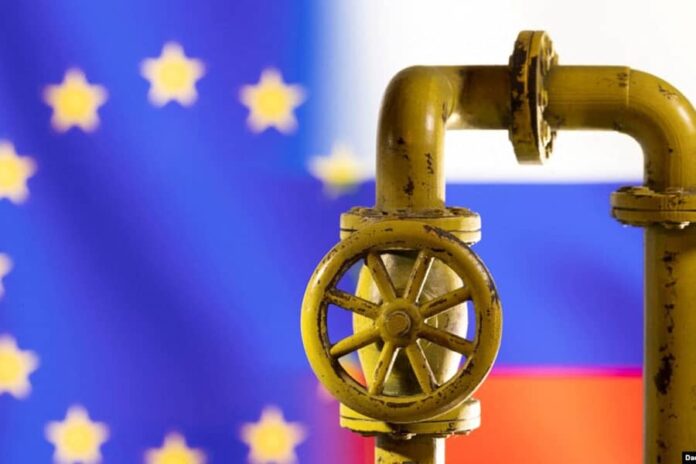The European Union, and not Russia, will suffer after Ukraine turned off the tap on Russian gas supplies to the bloc, Slovakia’s Prime Minister Robert Fico said Wednesday.
Kyiv refused to prolong a transit deal with Russian state energy giant Gazprom that allows Moscow to funnel natural gas into Central Europe via Ukraine’s pipelines, ignoring pleas from countries like Slovakia and Hungary that rely on cheap Russian energy.
The deal expired on Jan. 1, marking the end of an arrangement that has been in place for decades.
“Halting gas transit via Ukraine will have a drastic impact on us all in the EU — but not on the Russian Federation,” Slovak Prime Minister Fico said in a New Year’s address posted on social media.
Fico — who is friendly with Russian President Vladimir Putin, meeting him in Moscow in a surprise visit over the Christmas holidays to discuss gas supplies — has previously argued that the end of the deal will drive up costs for the EU and hit the bloc’s competitiveness, as well as increasing energy prices in Slovakia.
He has also threatened to take “reciprocal measures” against Ukraine if it does not extend the arrangement, including stopping electricity exports to the country as it faces a harsh winter.
Ukraine has brushed off the warning and offered its own domestic gas production as an alternative for its neighbors. Poland said it is ready to export more electricity to Ukraine if Fico follows through on his threat.
Polish Foreign Minister Radosław Sikorski on Wednesday hailed the end of the Russian gas deal as a “victory” for Kyiv.
“Putin spent billions building Nordstream to circumvent Ukraine and blackmail Eastern Europe with the threat of cutting off gas supplies. Today Ukraine cut off his ability to export gas direct to the EU,” he posted on X.
Russia had already cut off energy supplies to EU countries like Germany and Poland in the wake of its full-scale invasion of Ukraine in February 2022. However, a handful of member countries, including Slovakia, Hungary and Austria, have continued to purchase Russian gas despite a bloc-wide commitment to end reliance on Moscow by 2027.
Also on Wednesday, Russia ended gas deliveries to the Moldovan breakaway region of Transnistria, causing an energy shortage in the dead of winter that risks a humanitarian crisis.
Kyiv’s decision not to renegotiate its gas deal with Moscow is backed by the European Commission, with a Commission spokesperson saying the “EU is prepared” for an end to the arrangement after working for “more than a year” to ensure “alternative supplies are available.”
Since coming into office in 2023, Slovakia’s leader has emerged as one of the Kremlin’s staunchest allies in the EU, vowing to block Ukraine from joining NATO and refusing to send “another bullet” of state military aid to Kyiv.
By Seb Starcevic – Politico

